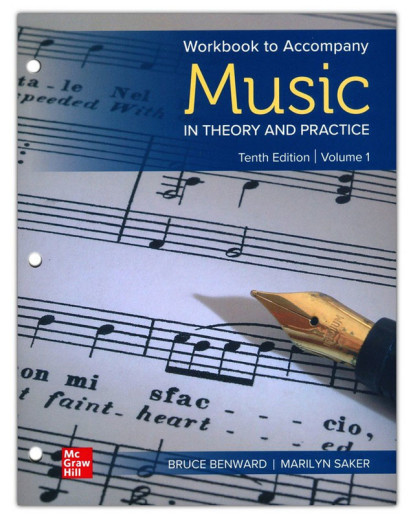We use cookies to make your experience better. To comply with the new e-Privacy directive, we need to ask for your consent to set the cookies. Learn more.
Music in Theory and Practice Workbook, Tenth Edition
This college-level music theory and practice workbook accompanies the Music in Theory Volume 1 text. It contains three different kinds of assignments: drill, analysis, and composition. It also provides guided review and self-testing sections that suggest strategies for reviewing and learning the material. Important feature to note: Since this is a college course, there is digital access needed that is usually supplied by your instructor. This digital access can be purchased from the publisher directly for an additional fee. This digital access is where you will find answer keys and the musical selections to listen to, along with other supplementary items. 246 pgs., looseleaf. ~Rebecca
Music in Theory and Practice 10e strengthens musical intuition, builds technical skills, and helps gain interpretive insights. The goal of the content is to instruct readers on the practical application of knowledge. The analytical techniques presented are carefully designed to be clear, uncomplicated, and readily applicable to any repertoire. Loose-leaf.

